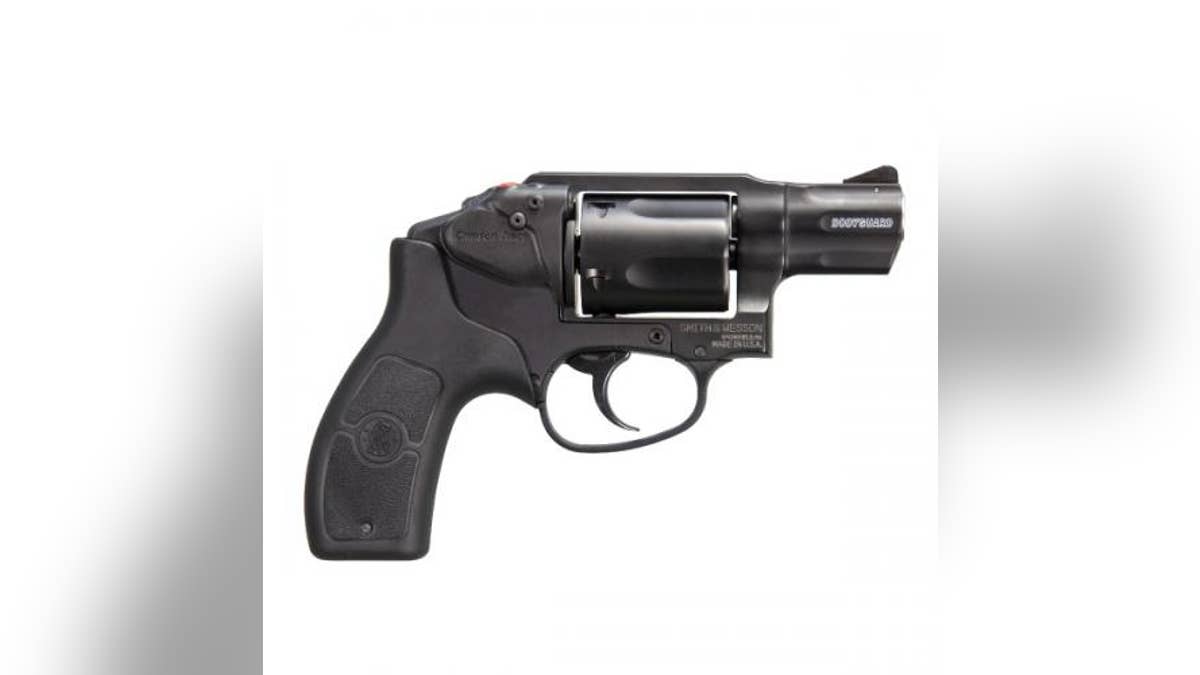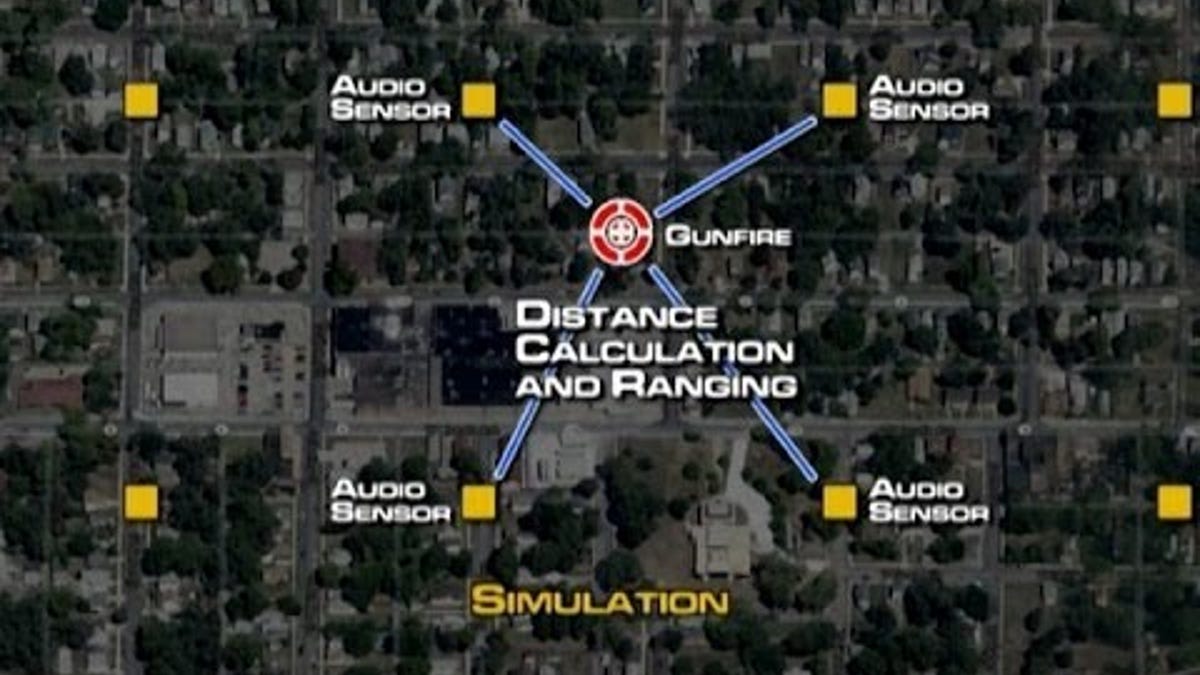
(Smith & Wesson)
Are those lamps on your local streets detecting when guns are fired? American cities are being upgraded to pinpoint shooters and help police fight gun violence.
Like something out of the futuristic policing TV show “APB,” new tech can locate the exact position where a gun is fired and report it immediately to law enforcement.
Called ShotSpotter, this is a tool that can be used by officials to respond even faster to the aid of gun violence victims— minutes can be the difference between life and death. And it provides police with far more information in advance.
Before arriving on the scene, the tech tells police the exact location of the shooter or shooters, the type of weapon, and number of shots fired. This sort of data can help law enforcement respond more effectively and reduce the risk to the officers responding.
Militaries use a similar technology to defeat enemy snipers. In war zones, these systems pinpoint the location of a hidden sniper, using the sound of the gunshot.
The ShotSpotter tech uses a similar acoustic approach, but in a system designed to protect civilian neighborhoods. It can also be used to protect locations that can be attractive for terrorists to strike, like power plants and tourist sites such as New York’s Times Square.

(ShotSpotter)
What is ShotSpotter?
ShotSpotter is a system of sensors that work together to calculate the location of gun crime.
Within the area of coverage, the tech can tell police officers where the shot was fired, how many shots, and the number of weapons involved.
ShotSpotter can even identify the weapon. From the sound of a military sniper’s weapon through to handguns, shotguns and rifles, this tech can distinguish and identify all different types of weapon sound signatures.
How does it work?
There are three parts to this tech: detect, locate, and alert. When a gunshot goes off, the ShotSpotter instantly alerts police of the gun crime in progress.
Acoustic sensors are installed at about 30 feet or more above street level in places such as rooftops and utility poles.
For every square mile, there would be about 15 - 20 sensors. This sensor system works together to detect and triangulate weapon activity.
THIS FOAM STOPS BULLETS COLD AND PULVERIZES THEM TO DUST
When there is a very loud boom and bang type noises like gunfire, it triggers the sensors to activate and record the gunfire.
Each sensor then captures the precise time, location, and the audio. An expert at the Incident Review Center receives the data to verify it is gunfire. From the firing of the weapon to relaying the verified data to law enforcement, this process takes less than 45 seconds.
Police officers can immediately receive the information on their smartphones, computers, in their patrol cars or from dispatch.
Before arriving in a potentially dangerous scenario, the officers can review the ShotSpotter maps and see displayed the locations, the number of shots fired and the number of shooters. They can even listen to the gunshot audio.
By pinpointing the location, first responders know where to exactly find victims to render aid as quickly as possible.
Why are cities using it?
Gun crime is underreported in the United States. Some estimates suggest only one in five shootings are called into 911. Since the tech has been introduced, there have been a number of times that the tech detected a gunfire incident before a 911 call was made for help. Just Tuesday, it was reported that ShotSpotter notified the police of a homicide before anyone called 911.
This sort of tech can save lives of victims and potential future victims by accelerating the speed of first responders. For gunshot victims, this could mean the difference between life and death.
And importantly, it improves the safety of police officers by giving them crucial data like number of shooters and types of weapons before arriving on the scene – so they know what they are facing.
FOR THE LATEST TECH FEATURES FOLLOW FOX SCITECH ON FACEBOOK
If the police don’t know exactly where to respond, then they can lose time searching for the location and the criminal or criminals, making it harder to capture the bad guys.
In addition to increasing arrests, law enforcement can quickly locate witnesses and gather crucial evidence like shell casings that can be crucial for successful prosecutions.
ShotSpotter is now partnering with Amazon Web Services and GE Current Lighting and expanding their reach.
Smart Cities was a White House initiative established under President Barack Obama to upgrade cities by leveraging state-of-the art technology.
In fact, one of these futuristic “Smart Cities,” San Diego, recently announced that the new GE high-tech streetlights will also be equipped with this tech to detect gun crime.
Where is it?
It’s not just the “Smart City” of the future that will use the tech. So far there are more than 90 installations across the United States and the world.
Cities across America are already using ShotSpotter from places on the west coast like Oakland, San Diego, and San Francisco, to cities like Wilmington, North Carolina, Trenton, New Jersey and New York City in the east.
FOR THE LATEST SCIENCE FEATURES FOLLOW FOX SCITECH ON FACEBOOK
In the south, places like Jefferson Parish, Louisiana as well as Birmingham and Miami use it. Texas has one of the highest rates of gun ownership, and San Antonio has also been an early adopter of the tech. In the midwest, Chicago, Milwaukee, Omaha, and St. Louis are a few ShotSpotter-equipped cities.
While proponents say that tech like ShotSpotter can reduce gun violence, critics cite concerns like privacy.
The tech is not designed to listen in on phone calls as you walk down the street—instead it detects very loud sounds with signatures like explosions or gunshot when they erupt in the air.
